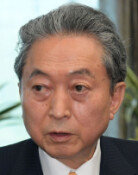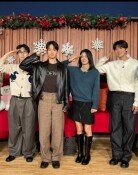Teen Lit

The quarterly magazine Poot (Munhak Dongnae) that was launched this summer is aiming at a specific target market. The magazine was established with the intent of introducing easy and fun literature to teenagers between ages 13 and 18.
Poot isnt the only one. In the past one or two years a steady flow of new young adult literature magazines have made it to the shelves. Ida written by teachers of the Chungbuk province, Purunjakga made by the Association of Writers for National Literature, and others like Munhaka, Miru, and Sentir are all teenage literature magazines. These magazines print out stories from their teenage readers, or let teenagers participate in the feature articles. Already 12 teenage literature magazines in 2006 alone are being funded by the Arts Council.
These magazines are trying to rekindle the magic of Hakwon. Hakwon was a mainstream magazine in the 1960s and 70s that became a debut magazine for many literary-minded teenagers. Famous writers of today such as Hwang Seok-young, Choi In-ho, Kim Seung-ok, Yoon Hoo-myung, and Ahn Do-hyun were all once aspiring hopefuls who wrote for Hakwon.
Nowadays, it must be confessed, literature isnt a priority on teenagers lists. Literature doesnt appeal to these youngsters who have become accustomed to portable game players and 24-hour television. What with the blood-curdling college entrance exams, literature clubs at school have become a forgotten activity, and students are losing their taste for sharing and discussing literature.
But very recently, there are signs of change. Teacher of literature at Anyang High School of Art and poet Kim Kyung-joo says, Around 2000, literature is starting to breathe again due to the college entrance exams. Because reading has become an important factor in college entrance exams, and special policies have been introduced to favor students who excel in literature, those young literary minds- hidden until now- are starting to reappear. Youngsters have been writing for websites like Postcard Poems (www.ilovecontest.com/munhak) and Writing Teens (teen.munjang.or.kr). They have shared information about the latest university literature contest, and evaluate each others works. The Internet let it be known that Anyang High School of Art and Chungbok Okcheon High School students are sweeping literature contests, and student writer Park Sung-joon, who was admitted to Myongji University on his writing talent, became famous on the Internet.
So basically what the teenage literature magazines are doing is transferring these Internet literature pieces onto paper. They are aiming to sort out the talented, and raise awareness of literature among students. Head of the literature department at the Arts Council and poet Jung Woo-young says, Since all of the magazines are new, the level of these magazines are pretty much the same. But some have shown excellent planning and print really fine pieces. Those who are savvy in this industry are focusing on the next issues of Ida, Munhaka, and Poot.
Writers are welcoming this new rise of teenage literature magazines with some words of advice. Moon Jung-hee, who was famous for the poetry book Breath of Flowers during her high school years, says, Although literature isnt as popular as before, this is proof that it still has the power to captivate. Even today, when Im screening the entries for high school literature contests, there are a lot of great writers, but she added, I must say, though, there are too many students who depend on their literary flair and know-how these days. Literature isnt about technique or wit, but about knowing how to bear pain and failure.
Former Hakwon star Yoon Hoo-myung advised, Literature shouldnt be seen as the direct path to a prestigious university. Our generation only set the bridge for Korean literature to cross over to the international circles, and the teenagers today are the future internationally acclaimed Korean writers. Dont just focus on literature. Study humanities, write on a broader scale.
kimjy@donga.com







